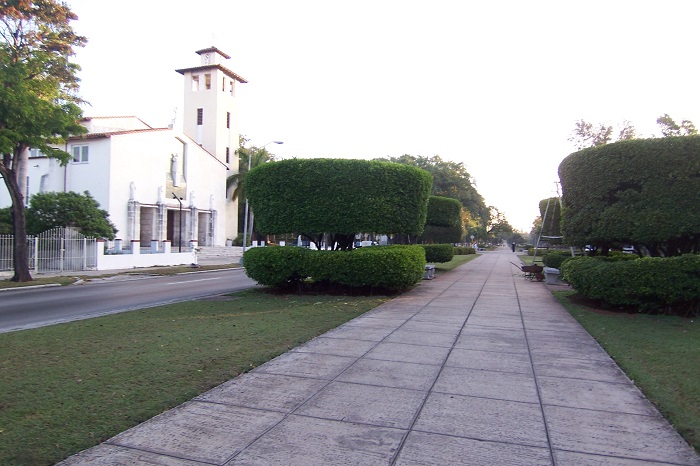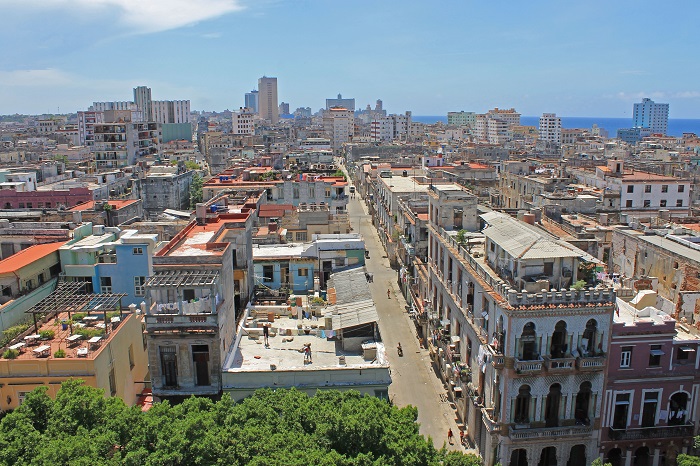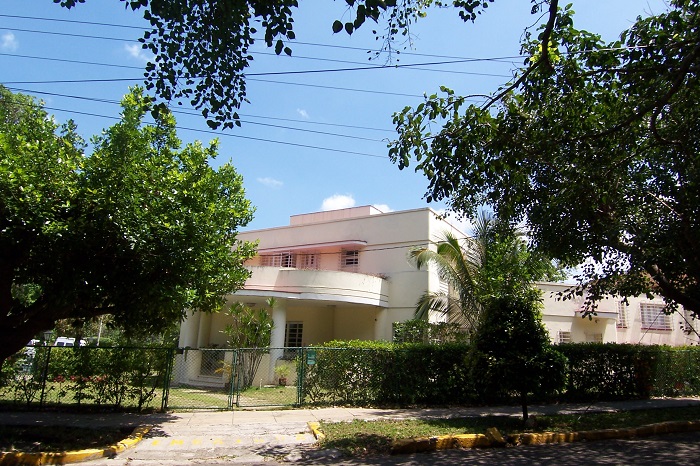I still vividly remember the first time I arrived in Cuba in March 2008. My first impression was that Cuba looked and felt forlorn. From the air, the landscape looked vast and empty. This heightened the sense of anxiety. I felt unease traveling into a world so vastly different from what I had been accustomed to. And now, I am leaving Cuba. And the feeling is bittersweet.
I remember riding to Havana on a beat-up 80s-era box-type Volvo from the airport. The sight was alternately amazing and depressing. Open tracts of green farm land were interspersed with decaying colonial buildings and ugly Soviet-style monstrosities. These sights reinforced my uneasiness in arriving at such a strange place. I remember muttering to myself: “What the hell did I get myself into?”
Havana was farthest from my mind merely two months before. I was then in the midst of being considered for posting to Pakistan. I was then told that there was a greater need for a Foreign Service Officer in Havana. It left me with no other choice, but to accept this posting. Nobody else would accept the posting, I was told. I was the only one willing to go at such short notice.
From the airport, I was bound for the Havana suburb called Miramar. Once the seat of Havana’s elite, the place reeks of old money. Many of its villas and mansions are ill-maintained and decaying with their former owners long gone. The creeping decay was evident. Such was my first of impression of the city. Havana was rotting in style.

Havana seems to be locked in the 1950s with very little development made during the intervening period. Even the road traffic reminds you of the 50s with many reconditioned American jalopies, still plying the streets. Cuba, I was told, was second only to the United States in the Americas in terms of automobile ownership in the 1950s. So much of these fleet continue to run to these days, by force of necessity.
The immense number of old buildings of different architectural styles was simply astounding. Colonial, Baroque, Art Deco, Art Nouveau, Classical, Moorish, name it, and you can find it in Havana’s eclectic architectural styles. Havana probably contains the most number of extant art deco buildings this side of the world, rivaling that of Deco Drive in South Beach in Miami.
Indeed, the stories were true about Cubans shoveling piles of money from sugar cane trade during the early part of the 20th century, an era that is known locally as the Vacas Gordas or the Fat Cows as translated into English. The epoch of the Fat Cows are long gone, but their legacy remains through the buildings that have been left behind.
Nowadays, the locals make fun of their locally-bred cows as demasiadas flacas for being too thin. Beware of accidentally running over those thin cows. In a country were cows are collective property of the State and the people, getting caught slaughtering one would net a longer prison sentence than getting caught murdering a person. That raises the expression – Holy Cow! – to a whole new level.

The transition from Manila to Havana was difficult for me. Having been used to a place where almost anything is readily available and being transplanted to a place where shortages are a fact of life was a bit unsettling. The biggest change for me was the food. I could not understand why Cuban cooking could be so bland and tasteless. Even the food in Havana’s Chinatown seemed bland.
To compensate for its unappetizing taste, the portions are usually huge. What Cubans say is food serving for one person can actually feed two-to-three Filipinos. Also, for a country that is surrounded by water, the apparent lack of seafood at the table is noticeable. Seafood or mariscos, as they locals call them, are usually reserved for the discriminating taste of tourists, the locals complain. One eventually learns to accept what’s available.

One also has to get used to the slower pace of life in Cuba. This is evident from the lack of traffic in the streets to the propensity of the locals for being late and Cubans loving to work snail-paced. Being on time is a mere suggestion, not a rule, so better be aware to be fashionably late.
Four years of living in Cuba has convinced me that the Western standards of customer service would never apply here. This is a place where hotel receptionists value making chisme or gossip on the phone more than trying to book you a hotel room. There is local joke going around about Cubans “pretending to work because the Government is pretending to pay them.”
Another story I like to tell is that of a visit we conducted to a buffalo-rearing site in Mayabeque province outside of Havana. There was a discussion whether or not a particular buffalo breed called mura would be suitable to Cuban conditions. This buffalo breed has been noticed to take long rests after having only done a few minutes of work. The Cuban workers at the research station burst out laughing. They remarked: “It is the Cubans themselves who belong to the mura breed, not their buffaloes!”
The Cubans make up for their short-comings by being an amiable lot, sometimes to a fault. Much has been said about the difference in temperament between “hot” and “cold” societies. Cubans certainly belong to the “hot” segment of the world population. This is society where the terms chismes and piropo (flattery) are common place. The words: mi amor (my love), mi vida (my life) and cariño (darling), are being bandied around quite often that those words have seemingly lost their value.

These people aren’t shy about showing their feelings. Even with the way they communicate with each other, they seem to be more evocative, with a lot of hand gestures and facial expressions involved. I think I have not met yet a “shy” Cuban. It seems that being introverted is against their innate temperament. What other cultures may call hubris, the locals perceive as natural Latin confidence.
Even Cuban women have their own charming way of using piropo to flirt with men, especially with foreigners. This is evidently an equal opportunity society, with very liberal views when it comes to sex and relationships. And haven’t I told you yet that in Cuba, marriage is a simply a contract made to be broken? Amorous flings are what they call as their favorite pass-time after baseball.

And their dancers are probably among the world’s best. Even “cold” Europeans and North Americans miraculously catch the “party bug” while in Cuba and come home with a much different life perspective.
These are the little things that I will remember most about Cuba. I will fondly remember its people and their distinct temperament. It’s foremost the Cuban people that makes this country interesting. Other places in the Caribbean have the same beaches and much better infrastructure. Yet, they lack the warmth and the unique eccentricities of the Cuban people. Cubans are both maddening and fascinating at the same time.
One just have to accept them as they are. They are truly a bipolar breed. It can be maddening at times working or dealing with them. They won’t be as focused on their tasks as, say, the Japanese or Koreans. They like to do work at their own leisurely pace. If you need to have something done in a hurry, you better do it yourself. Por que tu apures? “Why are you in a hurry,?” they ask me all the time. They aren’t lazy by any means. They just like to take sweet time to finish anything.
Four and a half years has gone so fast. As the locals say: el tiempo pasó volando. It still seemed like yesterday when I arrived in Havana. And now, I am on my way out. Something changed in me when I was here, and I don’t know if for the better or for worse. I am leaving Cuba a much different man than when I came in.

I am no longer moving at a breakneck pace as Iike I used to do. My mind is fuzzy, almost distracted. It probably has something to do with the fear of the unknown. I feel that I have become a bit more detached as well.
I was staring at my onward plane to Mexico and I felt nothing – no sadness for leaving nor excitement for what lies ahead. I spent the greater part of the past week doing a last lap around my favorite hangouts in Havana. Yet, I do not feel pangs of nostalgia. I took a last look at the building that has housed our Embassy for the greater part of a quarter century. I felt nothing but detachment.
I think Cuba has taught me to be inured to my own emotions much like the locals themselves have tempered theirs for the past fifty years. This is some sort of survival mechanism for them under this regime. Until then, Cuba, it’s been a good ride. Hasta Luego! Goodbyes are not forever, merely another opportunity to meet again, hopefully in better terms (for both of us).